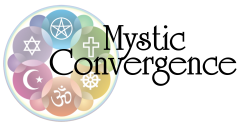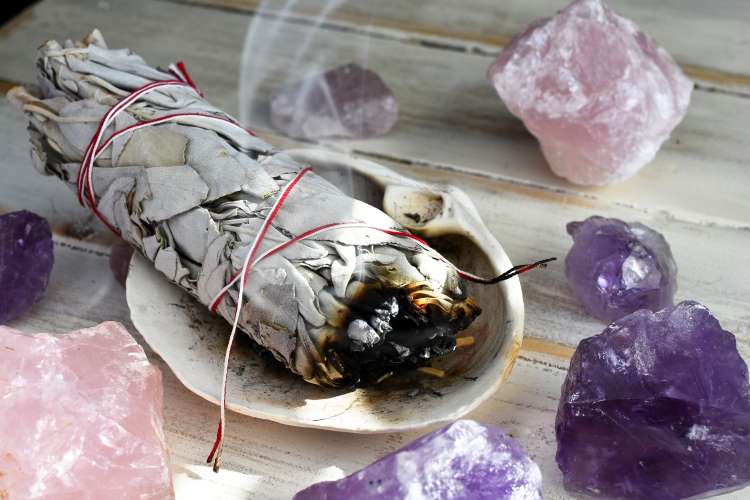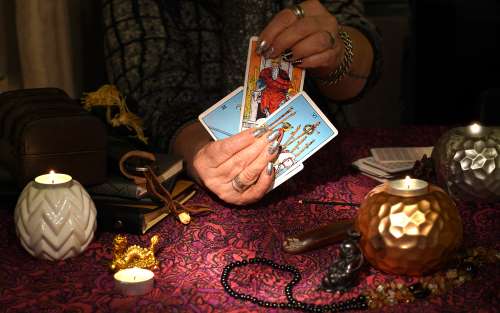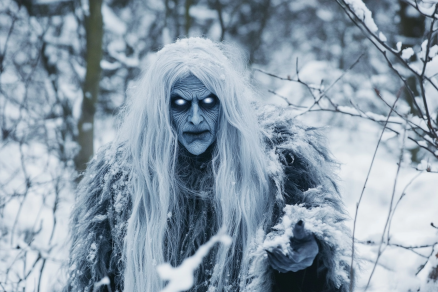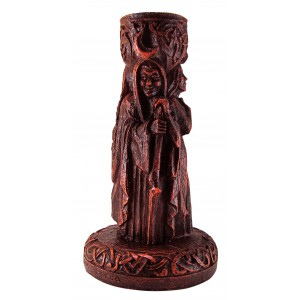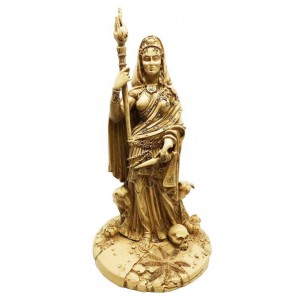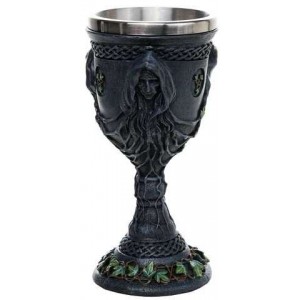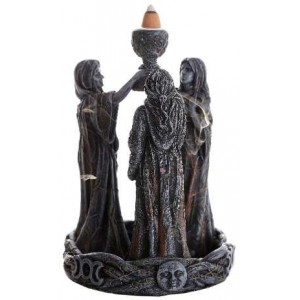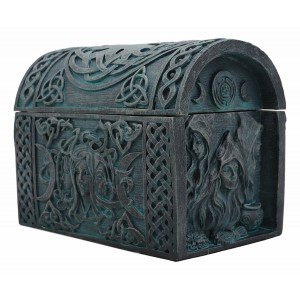The Meaning of the Triple Goddess: Unveiling the Profound Mysteries
- September 09, 2023
- 1965
- 0
Who is the Triple Goddess and what is the meaning of the Triple Moon?
The concept of the Triple Goddess has fascinated and inspired humanity for centuries, transcending cultural boundaries and enduring the test of time. This multifaceted archetype represents the interconnectedness of the divine feminine with the natural world, embodying the cycles of life, death, and rebirth.
The Triple Goddess, with her three facets—Maiden, Mother, and Crone—has been my constant companion, guiding me through the seasons of my own life. She's whispered in the rustling leaves of spring, cradled me in the warmth of a mother's love, and now, in the quiet moments of reflection, she continues to impart her ancient wisdom.
Let us take a look at the esoteric and profound meaning of the Triple Goddess, exploring her manifestations, her significance in different traditions, and her enduring relevance in the modern world.
The Origin of the Triple Goddess
The origins of the Triple Goddess are as ancient as human civilization itself, with roots extending into prehistory. This section will unravel the diverse cultural origins of the Triple Goddess and how she was perceived in various traditions.
Mediterranean Origins
In the Mediterranean region, the Triple Goddess appeared under different names and forms, each with its unique attributes and symbolism. The ancient Greeks, for instance, revered her as Hecate (or Hekate), Persephone, and Demeter, representing the phases of the moon and the seasons. Hecate symbolized the dark moon and the underworld, Persephone embodied the waxing moon and the spring, and Demeter represented the full moon and the abundance of summer.
Similarly, in Roman mythology, she was known as Luna, Diana, and Proserpina, where Luna represented the new moon, Diana the crescent moon, and Proserpina the full moon.
Celtic and Druidic Influences
In Celtic belief, the Triple Goddess is often associated with the land itself and its ever-changing seasons. She is the guardian of the sacred landscape, mirroring the cycles of nature in her own trifold nature.
- The Maiden (Anu): The Maiden aspect of the Celtic Triple Goddess represents the youthful and fertile phase of life. She is often associated with spring, new beginnings, and the burgeoning vitality of the earth. Anu, a Celtic goddess of prosperity and fertility, embodies the spirit of the Maiden, blessing the land with abundance.
- The Mother (Danu): Danu, another prominent Celtic goddess, embodies the nurturing and maternal aspects of the Triple Goddess. She is often associated with summer when the earth is in full bloom. As the Mother, she provides sustenance, protection, and fertility to the land and its people.
- The Crone (Morrigan): The Crone aspect of the Triple Goddess is represented by the Morrigan, a powerful and enigmatic Celtic goddess associated with death, transformation, and wisdom. She corresponds to the autumn and winter seasons when nature undergoes profound changes. Morrigan's presence reminds us of the inevitability of death and the wisdom that comes with age and experience.
Indian Goddesses
The Indian subcontinent also embraced the concept of the Triple Goddess, albeit with different goddesses. Saraswati represented knowledge and creativity, Lakshmi symbolized wealth and abundance, and Kali was the fierce goddess of destruction and transformation. Despite their differences, they were seen as interconnected aspects of the divine feminine.
The Symbolism of the Triple Goddess
No matter the culture, the Triple Goddess is a symbol of unity and cyclical change, mirroring the natural world's rhythms and the phases of human life. She represents the cycles of the seasons, life, and a woman’s transformation through her life.
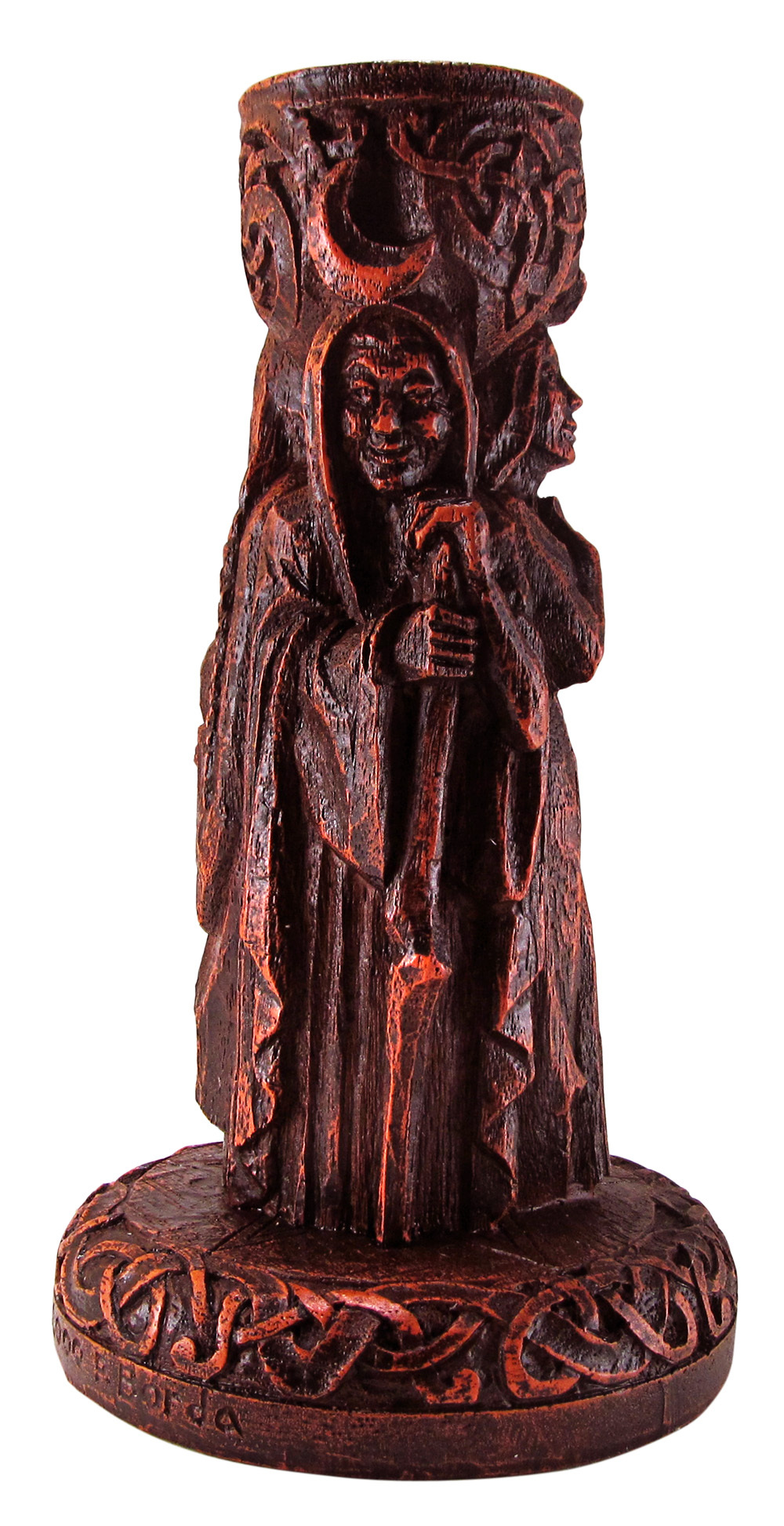 The Maiden
The Maiden
The Maiden embodies youth, innocence, and creativity. She is associated with the new moon and the spring season, representing the potential and untapped energy of new beginnings. She is embodied by Artemis, Persephone, Brigid, Bastet, Hathor
The Mother
The Mother represents fertility, nurturing, and abundance. Aligned with the full moon and the summer months, she symbolizes the peak of reproductive years and the earth's vitality. She is Demeter, Isis, Gaia, Parvati, Frigg.
The Crone
The Crone is the wise elder, signifying wisdom, acceptance of mortality, and the transformative power of death and rebirth. She corresponds to the waning moon and the autumn season. She is embodied by Hecate, Kali, Cerridwen, Morrigan, Hel.
Together, these three aspects encapsulate the entire cycle of life, death, and rebirth, mirroring the cycles of the moon and the seasons in nature.
As I stand at the crossroads of my own transition to crone, I can't help but reflect upon the profound journey I've undertaken—a journey that's intimately intertwined with the ever-revolving wheel of the Triple Goddess. I am a woman who has traversed the seasons of life, embracing the role of Maiden with boundless vigor and a quest for knowledge. I moved from the stable and nurturing Mother to friends and furbabies if not children. And now, with a heart seasoned by experience, I find myself embracing the wisdom and depth of the Crone.
The Significance of the Triple Goddess in Different Traditions
The Triple Goddess holds profound significance in various spiritual and religious traditions, each interpreting her in a unique and meaningful way. This section sheds light on her role and importance across different belief systems.
Wicca and Neo-Paganism
In Wiccan belief, the Triple Goddess is central to their understanding of the divine. The Triple Goddess is invoked as a symbol of the sacred feminine and celebrated throughout the Wiccan Wheel of the Year. Her influence extends to various aspects of Wiccan rituals and practices.
Goddess Spirituality
The Goddess spirituality movement, which gained prominence in the latter half of the 20th century, celebrates the Triple Goddess as a source of empowerment for women. She is a symbol of the movement's emphasis on reclaiming the feminine in spirituality and healing the disconnect between humanity and nature through the reverence of the Triple Goddess.
Carl Jung's Archetypes
Swiss psychiatrist Carl Jung recognized the archetypal power of the Triple Goddess in the human psyche. He saw her as a representation of the Anima—the feminine aspect within the male psyche that serves as a source of creativity and emotional depth.
The Triple Goddess Moon Meaning: Lunar Phases and Symbolism
One of the most visible aspects of the Triple Goddess archetype is its deep connection to the phases of the moon. Let's look at the lunar symbolism associated with the Triple Goddess, shedding light on the intricate relationship between her and the moon's phases.
- New Moon: The Maiden's Promise: The New Moon phase corresponds to the Maiden aspect of the Triple Goddess. As the moon begins a new cycle, it symbolizes youth, new beginnings, and untapped potential. This phase represents the promise of growth and the opportunity for fresh starts. It is a time for learning, exploration, and experimentation.
- Waxing Moon: The Mother's Nurturing Power: As the moon waxes and grows in illumination, it embodies the Mother aspect of the Triple Goddess. This phase represents fertility, abundance, and nurturing energy. The growing light represents the growth of life in the mother’s womb. It's a time to nurture ideas, relationships, and projects, mirroring the caring and protective qualities associated with the Mother archetype.
- Full Moon: The Fullness of the Crone: The Full Moon is emblematic of the Crone aspect of the Triple Goddess. At this peak of illumination, it symbolizes the wisdom that comes with age and experience. The Full Moon phase is a time for reflection, insight, and spiritual growth, much like the profound wisdom attributed to the Crone. It is the culmination of the previous cycles with a more stable and powerful energy.
- Waning Moon: Embracing the Cycle: The Waning Moon, as the moon diminishes in brightness, aligns with the later stages of the Crone aspect. This phase signifies a time of release, letting go, and allowing for necessary endings. It mirrors the acceptance and transformation represented by the Crone. The cycle of diminishing strength leads back to the rebirth of the Maiden.
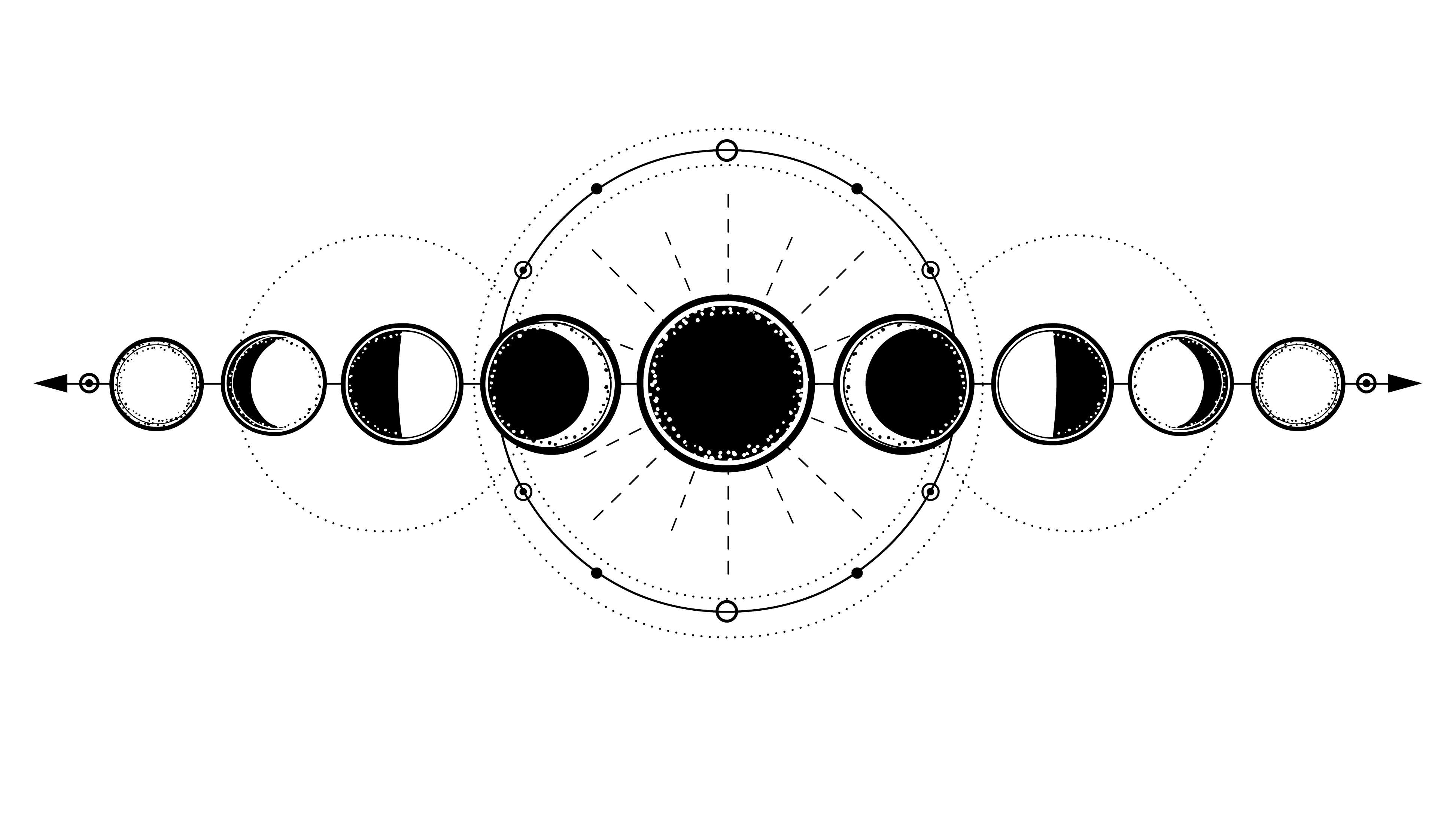
Hecate: The Triple Goddess Embodied
Among the various manifestations of the Triple Goddess, Hecate stands as a particularly prominent and intriguing figure. While also embraced as a darker Goddess and patron of magic and witchcraft, here we explore the unique attributes and significance of Hecate as the epitome of the Triple Goddess archetype.
The Three-Faced Goddess
Hecate's most distinctive representation as the Triple Goddess is her threefold nature. Often depicted with three heads or faces, each looking in a different direction, Hecate symbolizes the ability to see past, present, and future simultaneously. This triple-headed aspect underscores her deep connection to the cycles of life, death, and rebirth.
The Maiden, Mother, and Crone
Hecate's threefold nature aligns perfectly with the Maiden, Mother, and Crone aspects of the Triple Goddess. As the Maiden, she embodies youth, new beginnings, and the promise of growth. The Mother aspect of Hecate represents her role as a protector of childbirth and motherhood, offering guidance and support during the transformative process of giving birth. Finally, as the Crone, Hecate symbolizes wisdom, insight, and the acceptance of the natural cycles of aging and death.
The Crossroads Goddess
One of Hecate's most well-known symbols is her association with Crossroads. Often depicted holding two torches, she illuminates the paths at crossroads, guiding travelers through their choices. This symbolism ties into her role as a goddess of transitions and choices. Crossroads represents moments of decision and change in life, and Hecate is invoked for guidance and protection during these pivotal times.
Hecate in Greek Mythology
Hecate's presence in Greek mythology is significant, as she frequently interacts with other gods and mortals, playing pivotal roles in various narratives. She is sometimes depicted as a companion to Persephone, assisting in her descent into the underworld and her return to the world of the living. This connection reinforces her role as a goddess associated with both life and death.
Hecate in Modern Practices
In contemporary pagan and witchcraft traditions, Hecate remains a popular figure for devotion and reverence. Her association with magic, witchcraft, and the moon makes her a natural choice for those seeking to connect with the divine feminine and harness mystical energies. Many practitioners invoke Hecate for guidance in spellwork, divination, and personal transformation.
Modern Relevance of the Triple Goddess
In our rapidly changing world, the Triple Goddess continues to hold a timeless and relevant place in spirituality and personal growth. This section examines her contemporary significance and how she remains a source of inspiration and guidance for individuals seeking a deeper connection with themselves, nature, and the mysteries of existence.
Feminine Empowerment
The Triple Goddess stands as an enduring symbol of feminine strength and empowerment. Her three aspects—Maiden, Mother, and Crone—reflect the complexity and depth of the feminine experience. In a world that increasingly recognizes the importance of gender equality and empowerment, the Triple Goddess inspires women and men alike to embrace all aspects of their lives and selves.
Environmental Consciousness
In an era marked by environmental challenges and concerns, the Triple Goddess's connection to nature takes on added importance. Her association with the cycles of the moon and the seasons underscores the need to protect and honor the natural world. Many individuals and movements turn to the Triple Goddess as a symbol of Earth's rhythms, emphasizing the importance of sustainability and ecological awareness.
Personal Growth and Transformation
The concept of the Triple Goddess also serves as a powerful tool for personal growth and transformation. Her phases mirror the stages of life, offering profound insights into one's own journey. By meditating on these aspects, individuals can gain a deeper understanding of themselves and navigate life's challenges and changes with grace and intention.
Modern Rituals and Practices
This section explores modern rituals and practices associated with the Triple Goddess. From meditation and spellwork to lunar rituals, practitioners seek to connect with the Triple Goddess and tap into her energies for personal and spiritual growth.
- Lunar Rituals: Many individuals and spiritual traditions incorporate lunar rituals into their practices to align with the Triple Goddess's phases. These rituals often involve meditation, intention-setting, and spellwork during specific lunar phases corresponding to the Maiden, Mother, or Crone aspects.
- Meditation and Visualization: Meditation and visualization exercises centered around the Triple Goddess help individuals deepen their connection with their energies. By immersing oneself in the imagery and symbolism associated with each aspect, practitioners can access the wisdom and guidance of the Maiden, Mother, and Crone.
- Spellwork and Magic: The Triple Goddess is frequently invoked in spellwork and magical practices. Her symbolism aligns with various intentions, such as new beginnings, abundance, and transformation. This section provides insights into how to incorporate the Triple Goddess into magical workings.
As I write this, at the threshold of the Crone phase, I am reminded that the journey is far from over. The Triple Goddess, with her eternal cycles, teaches us that life is a dance—a dance of growth, nurturing, and transformation. I embrace the Crone's wisdom, knowing that it is through the acceptance of all three aspects that I find true wholeness and harmony in the symphony of existence.
The Triple Goddess remains a timeless and multifaceted archetype that resonates with individuals seeking deeper connections, personal growth, and spiritual insights. Her enduring presence reminds us of the eternal truths embedded in the concept of the Triple Goddess and the enduring power of the divine feminine in all its forms. As you continue to explore the mysteries of the Triple Goddess, may you find inspiration, wisdom, and transformative experiences along your journey.
Explore More about the Triple Goddess
Related Posts
Hecate Unveiled: Exploring the History and Mythology of the Witchcraft Goddess
- 2303
- 0
Step into the twilight whispers of ancient myths with the Goddess Hecate, the enigmatic ruler of crossroads, magic, and the moonlit night. She's a figure shrouded in mystery, her torches casting shado..
The Cailleach: Ancient Celtic Winter Goddess
- 1740
- 0
The Cailleach, revered throughout the ancient British Isles, is one of the most enigmatic and powerful figures in Celtic mythology. Known as the Winter Goddess or Divine Hag, she embodies the harsh, c..



